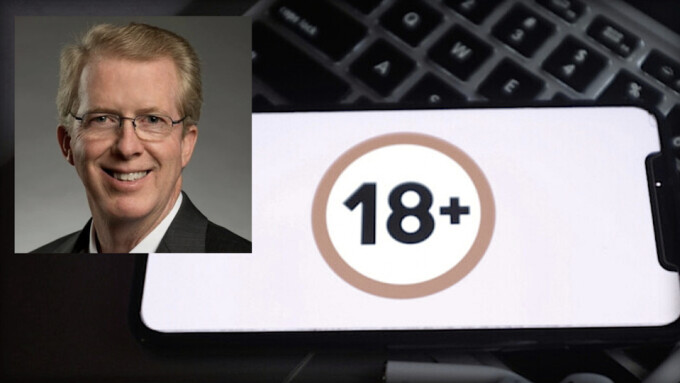MONTGOMERY, Ala. — The Alabama House of Representatives on Thursday passed a bill aiming to force phone and computer manufacturers to install default “porn filters” on devices sold in the state.
HB 167, which copies similar legislation passed in Utah in 2021, was introduced by Republican Rep. Chris Sells and passed by a vote of 98-0. The bill next moves to the state Senate.
As XBIZ reported, Sells has been persistently introducing “porn filter” bills for years, gaining more support among Alabama legislators of both parties in every round of votes, despite strong objections by free speech advocates and tech industry groups.
According to Alabama news site AL.com, both Republican and Democratic lawmakers “spoke in support of the bill during the brief time it was discussed before the vote.”
If HB 167 is passed by the Republican-controlled Alabama Senate and signed into law by Republican Gov. Kay Ivey, then effective Jan. 1, 2026, “all smartphones and tablets activated in the state must contain a filter, determine the age of the user during activation and account set-up, and set the filter to ‘on’ for minor users,” AL.com reported. “The devices must include the capability to deactivate and reactivate the filter with a password. The filter must be able to block access to obscenity as it is defined under state law.”
HB 167 creates both civil and criminal liability for electronics manufacturers if they fail to include such a filter, enabled by default, on a device sold in Alabama, and a minor then accesses “obscene material” on the device. Retailers would not be liable.
Sensationalist Claims in Favor of 'Porn Filters'
In 2023, the Alabama House voted in favor of the bill 70-8, with 24 abstentions, but the bill failed to pass the state Senate.
Sells’ repeated introduction of these copycat bills is part of an ongoing, state-by-state campaign to pass laws requiring default filtering, with support by religiously motivated organizations including anti-porn lobby NCOSE, formerly known as Morality in Media.
Sells told the Alabama House Judiciary Committee in 2021 that while state laws prohibit children from buying alcohol and cigarettes, when it comes to mobile devices, “All they’ve got to do is punch a couple of buttons and it’s wide open to every kind of adult thing you can imagine.”
Sells demanded state intervention on behalf of “children whose parents haven’t gone to the trouble to make sure the filter is activated.”
“What I’m finding out is that most parents are not taking the time to download an app or to go into the settings of these phones, and just buy a child a phone and hand it to them,” Sells told the committee.
In 2023, a Republican advisor to the Montgomery County District Attorney’s office testified during hearings about what he believes is a statewide crisis of “porn addiction,” a premise contested by most psychology research. The political aide sensationally described one minor as having become “a full-blown addict.”
The Utah bill that has served as Sells’ model originally included the unusual provision that it would not go into effect until five other states have passed matching legislation. That provision was rendered moot by another bill passed this year in the state, mandating porn filters without any delay.
Inset: Porn filter crusader and Alabama state Rep. Chris Sells (Alabama State House)






